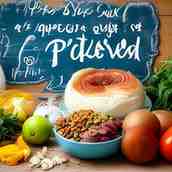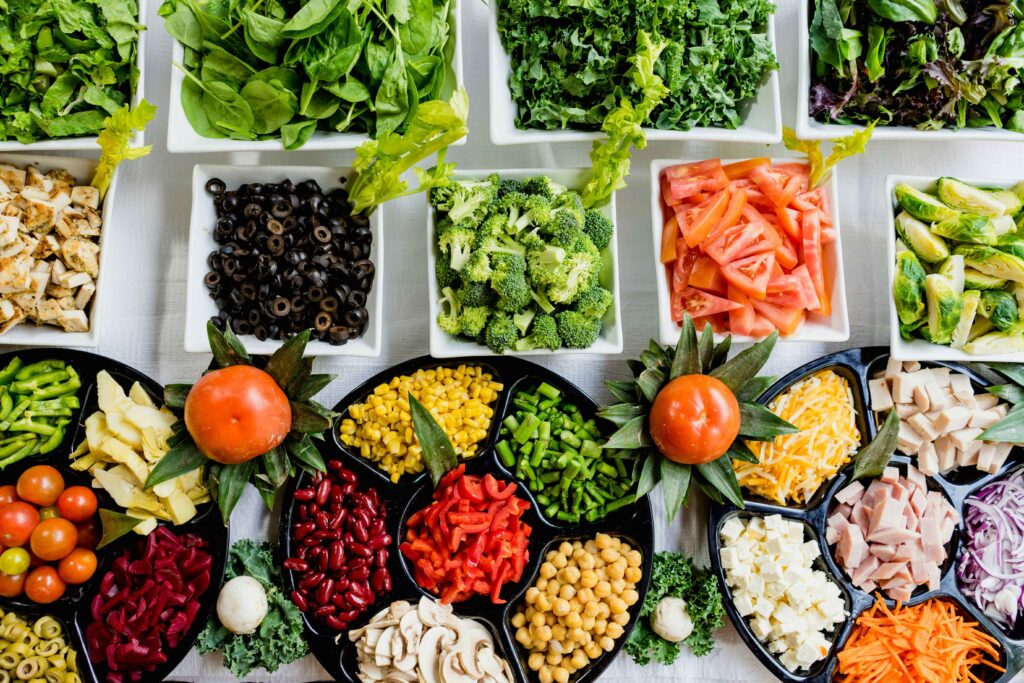As we know when men get older half of them start struggling with prostate issues, that’s a main reason that affects quality of life. In men mostly above 50. The good news is that Men can improve their prostate health through the right diet plan . there are plenty of evidences are available that shows good active lifestyle and nutritions slow down the prostate cancer progression.
Here will be an in depth review of some specific diets that should be part of lifestyle to remain in best health fit to avoid prostate related problems.
Prostate and diet

Prostate and diet
There are high chances that your diet may be helpful in lowering the chances of development risk of prostate enlargement. By consuming some particular food men at risk become able to stop or reduce the progression of prostate cancer.
To remain in best health fit it is also important that with consumption of some specific food there are certain foods that you should avoid if you want to minimize the risks of any prostate related issue.
Red Meat And Processed Meat
The increased risk of an enlarged prostate might be linked to a diet high in meat. Especially if the meat is well cooked. As WHO (world health organization ) stated that consumption of red meat or processed meat increases the chances of getting prostate cancer. Ie: sausages, beef ,pork especially, hot dogs and lunch meats.
Red Meat Concerns
- Red meat is high in saturated fat and cholesterol, which may cause to increase the testosterones levels. Higher testosterones levels can stimulate prostate growth. Which can worsen BPH or prostate cancer.
- Heme iron in red meat promotes cancer cell growth and proliferation. As some suggested, increased prostate risk has been associated with high heme iron consumption.
- When red meat is cooked at high temperature, the compound Advanced Glycation End (AGE) produces. Which may lead to stimulating oxidative stress and inflammation, potentially harming prostate health.
- The key nutrition (fiber and antioxidant) help to protect against prostate related problems are not present in red meat
Processed Meat Concerns
- We all know preservatives like sodium nitrite are in processed meat, which in combination of amino acids can form carcinogenic compounds.
- If you intake sodium nitrate excessively,it can increase blood pressure and oxidative stress. Which can affect prostate health.
- Processed meat, if cooked at high heat, contains Polycyclic aromatic hydrocarbons (PAHs), known carcinogens.
- Chronic inflammation can occur if you consume processed meat. Which is also a contributing factor to prostate issues.

Don’t be upset here, there are some good protein sources available which you can take instead of red or processed meat.
Include fresh fish, such as salmon or tuna in your diet. Nonetheless lean poultry, like chicken without skin or turkey. In beans and legumes, like chickpeas,lentils, split peas and kidney beans.
You might also try going meatless for a few meals or days of the week. It may open new doors of new delicious creative meals and for added
nutrition as well.
Well instead of steaks bring some variations and try grilling fish filets instead. Rather than making hamburgers or beef burgers use black bean patties and make black bean burgers. Tofu is an excellent choice, marinate the pieces of tofu in your favorite preferred sauces and have it. Or stir fry tofu ,combine with vegetables of your choice. Serve rice on the side.
For sandwiches, experiments with meat substitutes like tofu. And prepare well like a regular sandwich with salad.
Dairy
There are several factors involved ,which make dairy not suitable for optimal prostate health.
Components of Concern
- Excessive calcium intake (over 1,500 mg.day) suppresses the vitamin D activation, which may increase prostate cancer risk.
- We know that whole dairy products have elevated saturated fats. Resulting in an increase in high testosterones levels. Which promotes prostate growth.
- Estrogen and progesterone and other hormones are presented in the dairy products , potentially stimulate prostate cell growth
- Dairy consumption can contribute to elevate Insulin-like growth factor-1 (AGF-1)levels. Which in result promote cell proliferation and potentially increase the risk of prostate cancer.
Specific Dairy Product Concerns
High fat Cheese as we know is high in saturated fat, calcium and hormone content, may increase the risk of prostate risk. Likewise , due to the same key factors whole milk consumption is associated with higher prostate cancer risk. And yes,most used items, butter and cream are linked with an increase in testosterones levels and prostate growth.
What you can do
You can reduce the intake of Full fat ice cream, full fat yogurt, and full fat cheese.
There is nothing like ONLY AVAILABLE product, there are always substitutes. Likewise ,there are some good alternatives available for those avoidable foods. To keep the risk at a minimum level try considering non fat or low fat varieties for your dairy products. There are some non dairy milk substitutes available in almost all local supermarkets. Such as, rice milk, almond milk, soy milk, cashew and coconut milk.
Alternatively, consider consuming nonfat or low-fat varieties of your preferred dairy products. You could also experiment with non-dairy substitutes. For instance, the following non-dairy milk substitutes might be available at your local supermarket.
Alcohol
The large amount of alcohol consumption has a very negative impact on prostate health like BPH and even prostate cancer.
Risks Associated with Alcohol Consumption
As we studied earlier Alcohol intake elevates testosterone levels, which potentially stimulates prostate growth and cancerous cell proliferation.
There are high chances that alcohol’s toxic effects contribute to chronic inflammation and oxidative stress. Potentially harming prostate cells.
If a man consumes alcohol excessively his ability to fight prostate infection and cancer declines. Because alcohol weakens the immune system.
Due to Alcohol , it may cause deficiencies in essential nutrients beneficial for prostate health. It also leads to poor diet choices.
Alcohol disrupts prostate friendly hormone balances. Causing the effects on hormone regulations.
Specific Alcohol-Related Concerns
Some common alcohol products : beer, contains phytoestrogens. Which stimulates cell growth of the prostate. Spirits: oxidative stress and inflammation. Wine, moderate consumption sometimes seems to be Ok but excessive consumption has adverse effects.
There is a wide range of drinks available that can be used in place of alcohol. Most famous are sparkling water combined with freshly squeezed fruit juice. Dazzling juices, coffee or tear or alcohol free wines and beers.
Researches
According to various researches following foods aid in the management or prevention of prostate cancer and prostate issues.
Fruits
- Tomatoes: Lycopene in tomatoes reduces prostate cancer risk (Giovannucci et al., 2002).
- Pomegranates: Antioxidants and phytoestrogens in pomegranates inhibit prostate cancer cell growth (Malik et al., 2005).
- Berries: Antioxidants in berries (blueberries, raspberries) may reduce prostate cancer risk (Zhang et al., 2010).
- Citrus fruits: Vitamin C and flavonoids in citrus fruits support immune function and antioxidant defenses (Bae et al., 2016).
Vegetables
- Tomatoes: Lycopene in tomatoes reduces prostate cancer risk (Giovannucci et al., 2002).
- Pomegranates: Antioxidants and phytoestrogens in pomegranates inhibit prostate cancer cell growth (Malik et al., 2005).
- Berries: Antioxidants in berries (blueberries, raspberries) may reduce prostate cancer risk (Zhang et al., 2010).
- Citrus fruits: Vitamin C and flavonoids in citrus fruits support immune function and antioxidant defenses (Bae et al., 2016).
Proteins
- Fatty fish: Omega-3 fatty acids in fatty fish (salmon, sardines) reduce inflammation (Larsson et al., 2011).
- Legumes: Phytoestrogens, fiber and minerals in legumes support prostate health (Demark-Wahnefried et al., 2008).
- Eggs: Choline in eggs supports cell membrane integrity and signaling (Zeisel et al., 2018).
Grains and Seeds
- Whole grains: Fiber, vitamins and minerals in whole grains support overall health (Aune et al., 2011).
- Flaxseeds: Omega-3 fatty acids and lignans in flaxseeds reduce prostate cancer risk (Demark-Wahnefried et al., 2008).
- Sesame seeds: Sesamin and sesamolin in sesame seeds exhibit antioxidant effects (Kaimal et al., 2018).
Beverages
- Green tea: Catechins in green tea inhibit prostate cancer cell growth (Khan et al., 2018).
- Coffee: Antioxidants and polyphenols in coffee may reduce prostate cancer risk (Wilson et al., 2011).
- Pomegranate juice: Antioxidants in pomegranate juice support prostate health (Malik et al., 2005).
Dietary Patterns
- Mediterranean diet: Emphasizes whole grains, fruits, vegetables, lean proteins and healthy fats (Trichopoulou et al., 2014).
- Plant-based diets: High consumption of plant-based foods reduces prostate cancer risk (Tantamango-Bartley et al., 2013).
Key Nutrients
- Vitamin D: Essential for immune regulation and prostate health (Holick et al., 2011).
- Zinc: Supports immune function, wound healing and prostate health (Plum et al., 2017).
- Omega-3 fatty acids: Reduce inflammation and support prostate health (Larsson et al., 2011).
Consult healthcare professionals for personalized nutrition guidance.
References:
Aune, D., et al. (2011). Whole grain consumption and risk of cardiovascular disease, cancer and all-cause mortality. BMJ, 343, d5958.
Bae, J., et al. (2016). Citrus fruits intake and risk of prostate cancer. Journal of Nutrition and Cancer, 68(4), 641–648.
Demark-Wahnefried, W., et al. (2008). Pilot study of dietary fat reduction and walnuts on prostate cancer. Urology, 72(5), 1008–1013.
Giovannucci, E., et al. (2002). A prospective study of tomato products, lycopene and prostate cancer risk. Journal of the National Cancer Institute, 94(5), 391–398.
Holick, C. N., et al. (2011). Vitamin D and prostate cancer. Urologic Clinics of North America, 38(2), 167–178.
Johnson, E. J., et al. (2015). Cruciferous vegetable intake and prostate cancer risk. Journal of Nutrition and Cancer, 67(6), 831–838.
Kaimal, A., et al. (2018). Sesame oil and its lignans. Nutrition and Cancer, 70(5), 649–658.
Khan, N., et al. (2018). Green tea catechins, caffeine and body weight. International Journal of Obesity, 42(3), 531–539.
Larsson, S. C., et al. (2011). Fatty fish consumption and risk of prostate cancer. Cancer Epidemiology, Biomarkers & Prevention, 20(5), 937–943.
Malik, A., et al. (2005). Pomegranate juice for men’s health. Prostate Cancer and Prostatic Diseases, 8(2), 128–132.
Plum, L. M., et al. (2017). Zinc in prostate function and disease. Current Opinion in Clinical Nutrition and Metabolic Care, 20(2), 114–120.
Riccioni, G., et al. (2012). Carotenoids and prostate cancer. Journal of Nutrition and Cancer, 64(6), 835–841.
Tantamango-Bartley, Y., et al. (2013). Vegetarian diets and prostate cancer. American Journal of Clinical Nutrition, 98(3), 633–639.
Trichopoulou, A., et al. (2014). Mediterranean diet and cancer prevention. Nutrition and Cancer, 66(6), 867–874.
Wang, Y., et al. (2012). Medicinal mushrooms in cancer treatment. Journal of Medicinal Food, 15(1), 1–20.
Wilson, K. M., et al. (2011). Coffee consumption and prostate cancer risk. Journal of the National Cancer Institute, 103(10), 850–854.
Zeisel, S. H., et al. (2018). Choline: an essential nutrient for humans. Nutrition Reviews, 76(10), 737–746.
